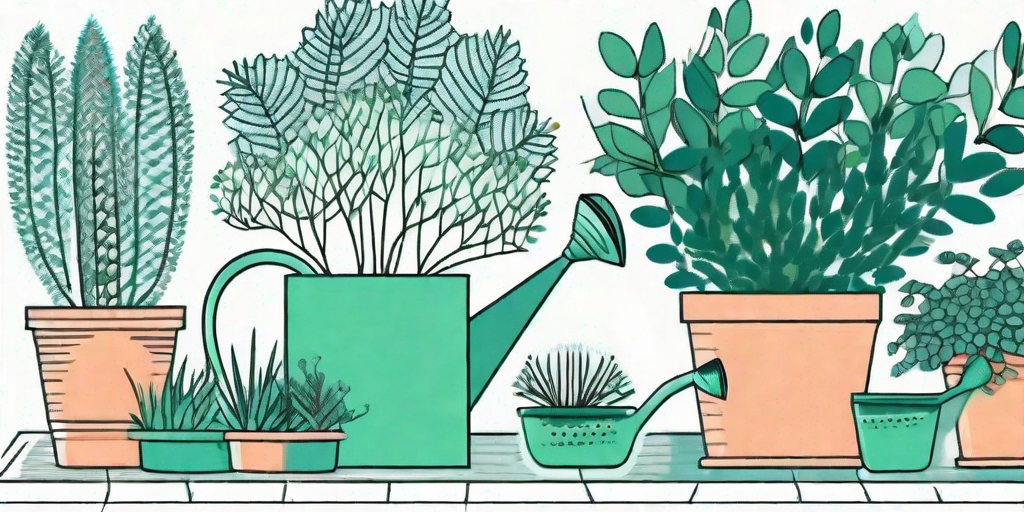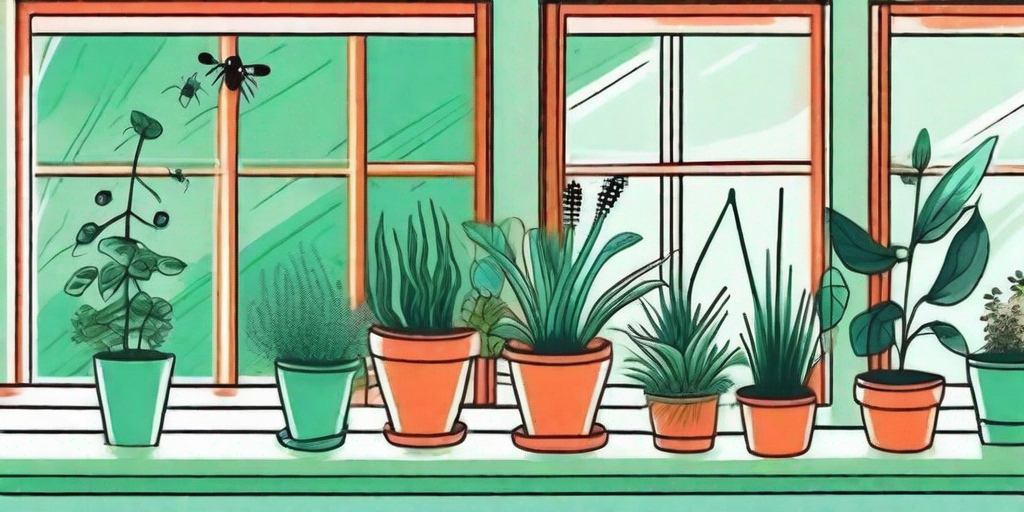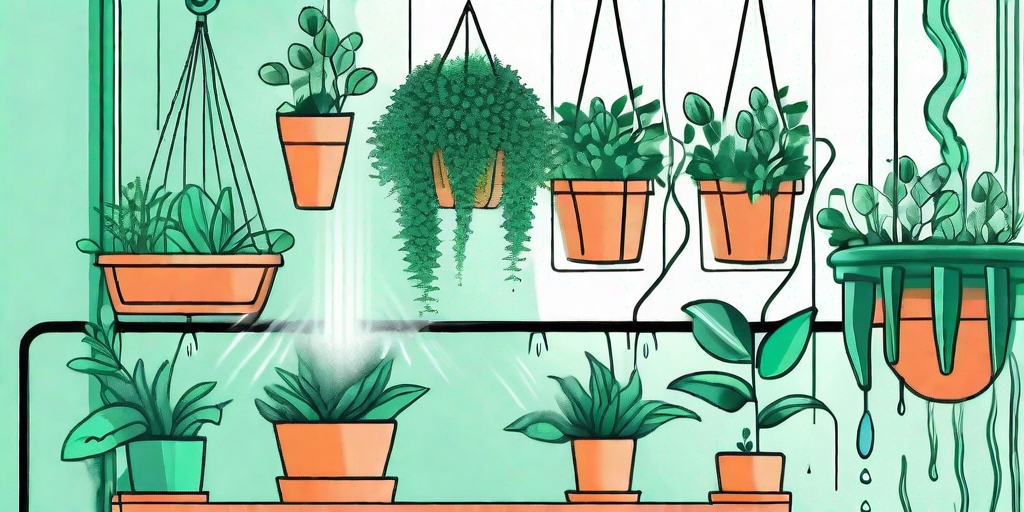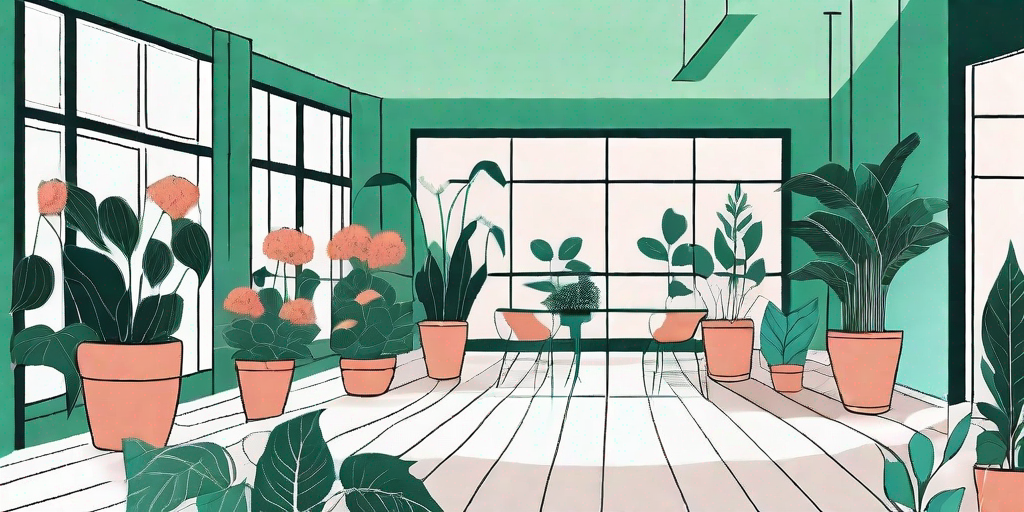
If you've ever found yourself in the midst of an ant invasion, you know it's no laughing matter. These tiny invaders can wreak havoc on your beloved potted plants, turning your green thumb into a red-hot mess. But fear not, dear reader, for we have the solutions to keep your plants safe, sound, and ant-free. So, buckle up and get ready for a wild ride into the world of ant prevention.
Understanding the Ant Invasion
Why Ants Love Your Potted Plants
First things first, let's delve into why ants seem to have a particular fondness for your potted plants. You see, ants are not just attracted to your plants for their lush greenery. They are also drawn to the moist soil, which provides a perfect environment for them to nest and breed. Plus, if your plants have any pests, such as aphids or mealybugs, ants will be attracted to the sweet honeydew they produce.
So, in essence, your potted plants are like an all-inclusive resort for ants - a place to live, a place to breed, and a buffet all rolled into one. No wonder they're so eager to move in!
Identifying the Invaders
Not all ants are created equal. Some species are more harmful to your plants than others. Identifying the type of ants you're dealing with can help you choose the most effective control methods. For example, fire ants can damage plant roots and are more aggressive, while sugar ants are less harmful but can still be a nuisance.
So, grab your magnifying glass and put on your detective hat. It's time to get up close and personal with your ant invaders. Don't worry, they're more scared of you than you are of them. Probably.
Keeping Ants at Bay
Creating a Barrier
One of the most effective ways to keep ants away from your potted plants is to create a barrier they can't cross. This could be a line of chalk, diatomaceous earth, or even a moat of water around your plant. Ants are not great swimmers, so a moat can be an effective deterrent.
Remember, the key here is consistency. Ants are persistent little creatures, and they'll keep trying to cross the barrier unless it's maintained regularly. So, keep that chalk or diatomaceous earth handy, and be ready to replenish your moat as needed.
Using Natural Repellents
Nature has provided us with a plethora of ant repellents, and it's time we put them to good use. Certain plants, like mint, lavender, and rosemary, are known to repel ants. So, consider planting these around your potted plants as a natural deterrent.
Other natural repellents include citrus peel, cinnamon, and vinegar. Sprinkling these around your plants can help keep ants at bay. Just remember to reapply regularly, especially after rain or watering your plants.
Dealing with an Existing Infestation
Removing the Ants
If ants have already set up shop in your potted plants, it's time to evict them. One effective method is to submerge the pot in a bucket of water for about 20 minutes. This will force the ants to come to the surface, where you can then remove them.
Another option is to use a mild insecticide or a homemade solution of water and dish soap. Spray this on the ants and their trails to disrupt their scent markers and kill them. Just be careful not to harm your plants in the process.
Re-potting Your Plants
In severe cases, you might need to re-pot your plants. This involves removing the plant from the pot, gently shaking off the soil to get rid of any remaining ants, and then re-potting the plant in fresh, sterile soil.
Re-potting can be stressful for plants, so it's best to do this as a last resort. But remember, a little stress is better than letting your plant become an ant colony.
Frequently Asked Questions
Why are ants attracted to my potted plants?
Ants are attracted to the moist soil in your potted plants, which provides an ideal environment for them to nest and breed. They are also attracted to any pests your plants may have, such as aphids or mealybugs, which produce sweet honeydew.
How can I prevent ants from infesting my potted plants?
You can prevent ants from infesting your potted plants by creating a barrier they can't cross, such as a line of chalk or diatomaceous earth, or a moat of water. You can also use natural repellents like mint, lavender, rosemary, citrus peel, cinnamon, and vinegar.
What should I do if ants have already infested my potted plants?
If ants have already infested your potted plants, you can remove them by submerging the pot in a bucket of water or using a mild insecticide or a homemade solution of water and dish soap. In severe cases, you may need to re-pot your plants.
Conclusion
Ants may be small, but they can cause big problems for your potted plants. But with a little knowledge and a few preventative measures, you can keep your plants safe and sound. So, don't let ants ruin your green thumb. Fight back with these tips and keep your potted plants ant-free.
Remember, the best defense is a good offense. So, arm yourself with these ant prevention strategies and declare war on these tiny invaders. Your plants will thank you.















